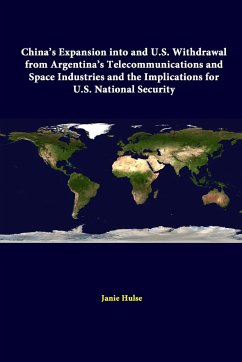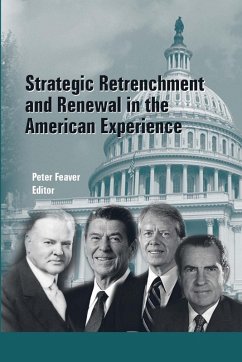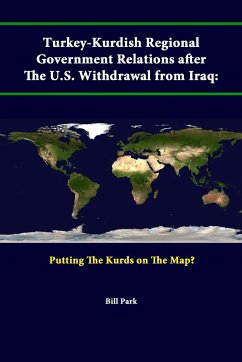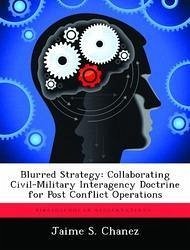Nicht lieferbar
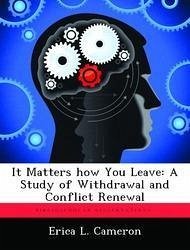
It Matters how You Leave: A Study of Withdrawal and Conflict Renewal
Versandkostenfrei!
Nicht lieferbar
Given the United States intervention in and intent to withdraw from both Iraq and Afghanistan, the question of whether the conduct of a military withdrawal matters to the renewal of conflict is both timely and relevant. Guided by the National Security Strategy, the U.S. is setting the conditions for stability and security in these areas by employing mechanisms consistent with Dr. Monica Duffy Toft's "mutual benefit and mutual harm" theory on building an enduring peace. Her theory balances sharing the benefits of peace and harming the defectors of peace (emphasizing domestic security sector ref...
Given the United States intervention in and intent to withdraw from both Iraq and Afghanistan, the question of whether the conduct of a military withdrawal matters to the renewal of conflict is both timely and relevant. Guided by the National Security Strategy, the U.S. is setting the conditions for stability and security in these areas by employing mechanisms consistent with Dr. Monica Duffy Toft's "mutual benefit and mutual harm" theory on building an enduring peace. Her theory balances sharing the benefits of peace and harming the defectors of peace (emphasizing domestic security sector reform over third party intermediaries) in order to mitigate causes of conflict, build stakeholders, and engender self-sufficiency in states experiencing civil conflict. The benefit/harm model in concert with doctrinal and theoretical considerations for the conduct of withdrawal serve as the framework for examining military intervention and subsequent withdrawal in two case studies, the British in Malaya and the U.S. in Vietnam. The case study analysis demonstrates that the conduct of military disengagement matters in that it can alleviate, ignore or create causes of conflict, and reinforce or undermine the stability mechanisms developed during an intervention. In sum, the conditions you leave after an intervention and the manner in which you leave both matter to the endurance of the peace. A limitation to the benefit/harm theory however, is that regardless of the stability achieved by the intervention and reinforced by the withdrawal, a determined external actor could foil that stability once forces are completely disengaged and the intervener's influence in the state is diminished. This does not change the requirement for military planners to ensure that the benefit/harm mechanisms are appropriately balanced throughout the campaign, and that the exit strategy is deliberate and coherent with the strategic and operational context and remains guided by an interest in stability. Ad This work has been selected by scholars as being culturally important, and is part of the knowledge base of civilization as we know it. This work was reproduced from the original artifact, and remains as true to the original work as possible. Therefore, you will see the original copyright references, library stamps (as most of these works have been housed in our most important libraries around the world), and other notations in the work. This work is in the public domain in the United States of America, and possibly other nations. Within the United States, you may freely copy and distribute this work, as no entity (individual or corporate) has a copyright on the body of the work. As a reproduction of a historical artifact, this work may contain missing or blurred pages, poor pictures, errant marks, etc. Scholars believe, and we concur, that this work is important enough to be preserved, reproduced, and made generally available to the public. We appreciate your support of the preservation process, and thank you for being an important part of keeping this knowledge alive and relevant.








